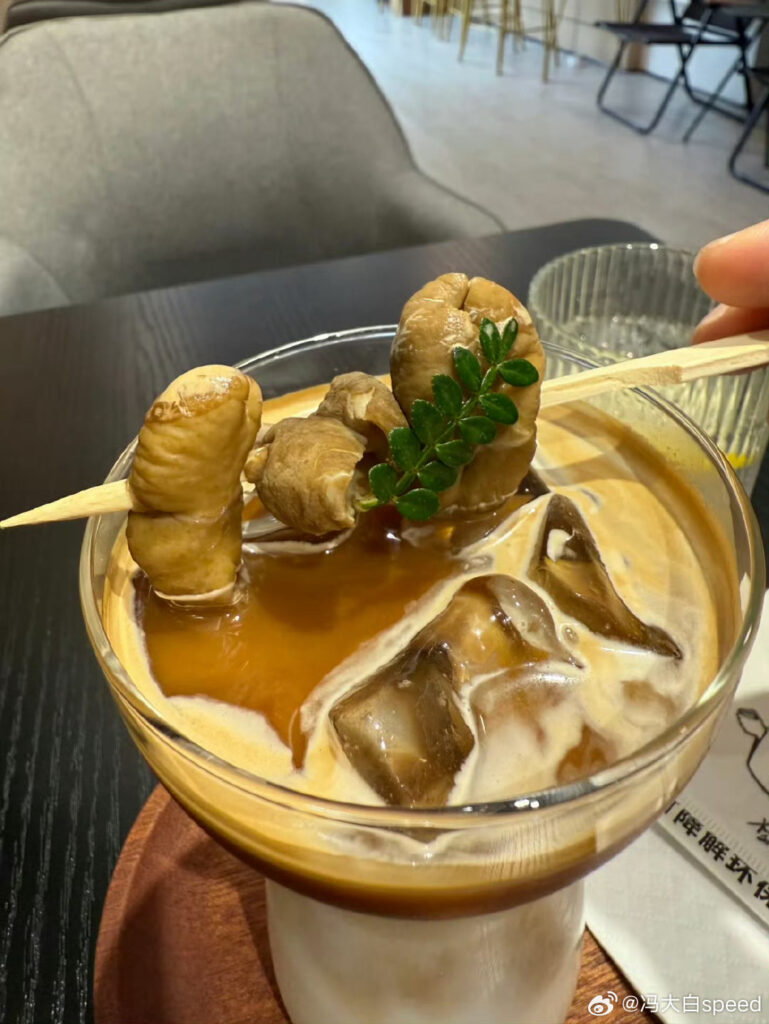Over a year after Starbucks released a Dongpo pork belly-flavoured latte for the Chinese New Year, another pork-dish coffee has gone viral in China. From Jiangyou, Sichuan, a coffee based on the local delicacy “red braised pork intestine” (红烧肥肠), exploded in popularity and attracted many tourists in June. Priced at 32 RMB (4.46 USD), the coffee’s“intestine” flavour has three strength levels, and it was reported that the mildest level 1 is very easy to drink and is quite tasty if you enjoy hot drinks that are both sweet and savoury.
Compared to Starbucks’s more industrialised and standardised use of Dongpo pork-flavoured syrup, the pork intestine coffee uses actual cooked pork intestine broth as stock to add flavour. The barista/cook then tops it off with a skewered piece of intestine that has had the fat removed. Perhaps for this very reason, you need to pre-order the coffee in advance. The shop is currently enjoying a four-time increase in sales, and 80% of customers are ordering the intestine coffee.


- #四川肥肠咖啡32元一杯 Pork intestine coffee in Sichuan costs 32 RMB per cup: 6.10 million views on Weibo, ranking number 47 on the Hot Search list
Innovative flavours in the food and beverage sector, especially coffee, have been increasingly popular. Adding savoury dishes to it is one of the more common twists. Indeed, compared to the likes of stinky tofu or luosifen-flavoured coffee, red-braised stock and coffee are a harmonious pairing, thanks to their caramel and spicy flavours. Indeed, the coffee shop owner says it tastes like salty cheese in an interview.




